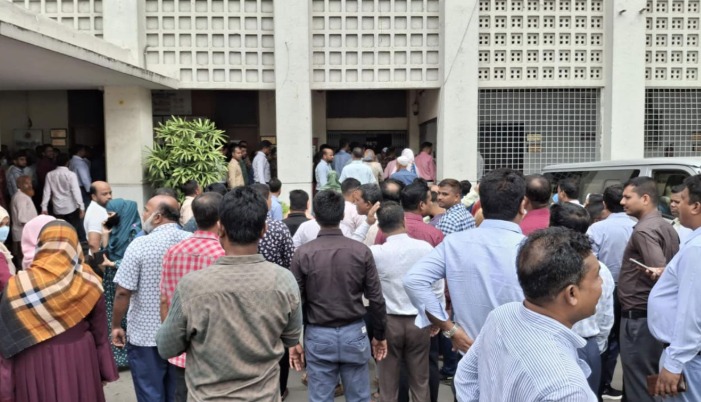Desk Report:
The Government Service (Amendment) Ordinance 2025 has been issued without paying attention to the agitation program of government employees. The government can dismiss government employees for four types of disciplinary offenses without departmental cases, but only by giving a show cause notice. This ordinance issued by President Md. Shahabuddin has not been given the opportunity to appeal.
The ordinance issued on Sunday night states that if a government employee engages in any act that amounts to disobedience or that creates disobedience among any other government employee or disrupts discipline or creates obstacles in the performance of duties or is absent or abstains from his work, collectively or individually with other employees, without leave or without any reasonable reason, or fails to perform his duties or incites or induces any other employee to be absent or abstain from his work or not to perform his duties or prevents any government employee from attending his work or performing his duties, then it will be misconduct. For this, the penalty may be demotion to a lower rank or pay grade, removal from service and dismissal.
How the complaint will be disposed of
The ordinance states that if proceedings are initiated against a government servant for any of the above-mentioned offences, the appointing authority or a person empowered by it, by general or special order, in this regard, shall frame the complaint and shall issue a show cause notice within seven working days of the issue of the notice naming the concerned government servant as the accused and stating why the penalty under this section should not be imposed. The authorized person shall also inquire in the notice whether the accused is willing to appear in person for the hearing or not.
After considering the accused’s case and, if he appears for a personal hearing, if the accused is found guilty by the appointing authority or the person making the complaint, or if the accused fails to show cause within the prescribed period, the appointing authority or the person making the complaint shall, within seven working days of the issue of the notice, give a notice showing cause why the punishment proposed in the notice should not be imposed.
In view of this notice, if the accused fails to show cause or fails to show cause within the prescribed period, the appointing authority may impose any punishment specified in the notice on the accused.
The ordinance states that if a notice is issued to the accused or is posted in a conspicuous place at his last known residence, or is published in at least two daily newspapers or is sent to his e-mail, the notice shall be deemed to have been duly issued.
If a government employee is sentenced under this section, he can appeal against the order under section 34 within 30 working days of receiving the order imposing the sentence and the appellate authority can uphold, cancel or vary the order.
However, an appeal cannot be filed against an order issued by the President. In this case, the sentenced employee can apply to the President for reconsideration of the order within 30 working days of receiving the order imposing the sentence. The ordinance states that the President can then issue whatever order he deems appropriate and this order will be considered final.
Employees staged an unprecedented protest at the Secretariat today in protest against the government’s initiative to amend the Government Service Act. Employees outside the Secretariat are opposing the initiative to amend this law.
The leaders of the employees warned from a protest rally at the Secretariat today that if the Government Service Act is amended, advisors will not be allowed to enter the Secretariat.




